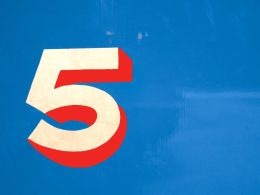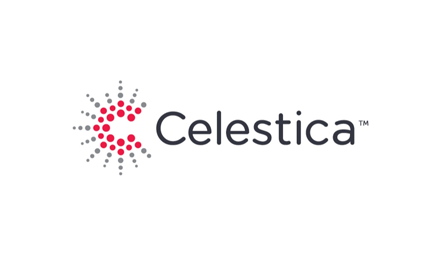Consuelo Mack WealthTrack - November 19, 2010
CONSUELO MACK: This week on WealthTrack, the financial sleuth-hedge fund manager who identified the gaping financial holes in Lehman Brothers, Allied Capital and the financial system at large. Where is he seeing strengths and weaknesses now? A rare interview with Greenlight Capital’s David Einhorn is next on Consuelo Mack WealthTrack.
Hello and welcome to this Great Investor edition of WealthTrack. I’m Consuelo Mack. If you are looking for a morality tale about the financial crisis and the long trail of its aftermath, which we are still navigating, I think we have found just the ticket. It is the updated version of hedge fund manager David Einhorn’s 2008 book, Fooling Some of the People All of the Time: A Long Short (and now Complete) Story. Only this time, its new title reads Fooling Some of the People All of the Time: A Long Short (and now Complete) Story. And complete it is because the financing company Einhorn shorted, ultimately successfully after 7 long years, is no more. Suffice it to say, as you can see from this stock chart of Allied Capital, it was a harrowing ride. A roller coaster from 2002 when Einhorn’s firm Greenlight Capital started shorting its shares, to 2007 when the stock went into a free fall But that’s not the half of it. In the process, Einhorn was, as he describes it, “attacked by the company, vilified by the press, and investigated by the Securities and Exchange Commission.” And that’s the mild stuff.
You will see in just a moment, it takes an unusual individual to be a successful long investor, let alone a successful short. David Einhorn is both: summa cum laude graduate of Cornell, world class poker player, co-founder of value-oriented hedge fund, Greenlight Capital in 1996, when he was still in his twenties. And Greenlight has delivered greater than a 21% annualized net return for its partners since its inception by mostly buying companies long, but making its reputation shorting stocks in a very public way. One of its most heralded shorts was Lehman Brothers, another bruising, albeit much shorter battle. As for the morality tale, Einhorn believes the Allied Capital saga has a meaning far beyond the company. He says it represents what’s still wrong with the entire financial system. I asked him for some specifics.
DAVID EINHORN: The basic problems were that you had accountants that weren’t doing proper oversight. You had the SEC, which was not doing proper oversight. So you have rules on the books that are not actually being enforced. You have a management team that is being dishonest. And you have all of the support network, which is supposed to actually be sort of a watch dog, actually enabling it. So you have Wall Street analysts touting management’s side of the story. You have the financial media taking on their sound bytes and adopting them as just the way that things ought to be. And so you have this entire sort of breakdown in terms of watch dogs, and then cheerleading section that is actually enabling the bad behavior to persist, ultimately to the detriment of the people who are supposed to be protected, which were the investors.
CONSUELO MACK: Has anything changed? Are any of the watch dogs doing their job better?
DAVID EINHORN: Well, the truth actually is, what we’ve seen is, even in the bigger financial crisis, the same watch dogs have just repeated the same behavior, just in a much bigger way. So what we’ve seen, the same kind of sort of forbearance towards Allied Capital has been granted to the big banks, the big investment banks, and so forth. The credit rating agencies, which did such a bad job with a subsidiary of Allied Capital, we now know that they did such a horrible job, perpetuating the whole crisis, and quite honestly, even though we passed a financial reform bill which is longer than a telephone book …
CONSUELO MACK: Right, 2,000-some odd pages, right?
DAVID EINHORN: Yes. It doesn’t actually address the obvious things that came out of the crisis that a common sense person would say, we need to simply fix them.
CONSUELO MACK: So what do we need to fix?
DAVID EINHORN: Number one is, we shouldn’t have credit rating agencies in any form. Even in their best, they add to cyclical pressures. They say positive things when things are good, that restores confidence; and then when things start getting into a crisis, they actually exacerbate the crisis by now saying that things are bad. Another thing that needs to be changed is, we learned that the money markets are unregulated banking institutions without reserves and without regulation, such that they can’t suffer even the smallest amount of loss. That was the big fallout from the Lehman crisis, was when the money market started appearing to have runs on them. And …
CONSUELO MACK: And a couple broke the buck.
DAVID EINHORN: That’s right. And soon the investors there, they basically believed that the buck could not be broken, and so the whole system was going to collapse around that. And that remains very much in place today, with all of that same risk. Number three, we learned that big financial institutions, if they’re so big, and you allow them to fail, they’re going to have domino effects.
CONSUELO MACK: So even with what we’ve seen, with the banks being more prescribed in what they are able to do, I mean, using much less leverage, being more scrutinized, you don’t think that that’s enough?
DAVID EINHORN: It’s just not enough. If you look at the big banks, they’ve gone from maybe 25 or 30 times leverage to 15 or 16 times leverage, or something like that. That’s still a lot of leverage. And it doesn’t count the derivatives books. And you have these huge notional derivatives books that, they’re just sort of tail risks that are sort of out there, and nobody really knows what’s in them, and nobody knows what risk they pose, and you certainly know that if any of the big four or five books that have the massive derivatives books was going to be on the cusp of failing; you would need to bail them out, the same way, in the future, that you would in the past. Notwithstanding whatever the new rules supposedly say.
CONSUELO MACK: So as an investor listening to you, would you touch a bank with a ten foot pole? At this point, would you invest in one of the major money center banks?
DAVID EINHORN: No. We wouldn’t invest in the major money center banks.
CONSUELO MACK: In a recent letter to Greenlight Partners, which, for those of us who don’t own hedge funds, means investors, you wrote-- you were very critical of the Federal Reserve, and the most recent round of quantitative easing. And not only do you doubt it is going to be successful, but you also think that it could actually be harmful. Why?
DAVID EINHORN: Well, I think it’ll be harmful for growth, right away, if the purpose of the quantitative easing is to ease financial conditions, thereby, according to the Fed Chairman’s op-ed, make the stock market go up, make some people feel wealthy, and then go out into the stores and buy things. That’s offset by the fact that they’re trying to create inflation. And the may not get the inflation where they want. They’d love the inflation to be in house prices. But they might get it instead in oil prices. Or cotton prices. Or food prices. And there’s already a lot of evidence of this. The problem is that those prices affect a large number of people who have to buy these sort of necessities of life.
CONSUELO MACK: Food and shelter.
DAVID EINHORN: Food and shelter, and …
CONSUELO MACK: Right. Energy.
DAVID EINHORN: … clothing, and energy. And if the prices of those things go up, they’re not going to have as much money to buy other things. And so you may actually not get any increase in demand. You may actually slow down economic growth. And that is separate and apart from the longer-term ramifications of going through a process of effectively money printing, buying, creating electronic money to buy Treasury securities, which is what the so-called quantitative easing ultimately amounts to.
CONUSLEO MACK: Now, one of the things you just mentioned is inflation. And we are seeing inflation in hard assets. And one of the hard assets that you own at Greenlight Capital is gold. It’s your largest position. So what does gold represent to you, in your portfolio?
DAVID EINHORN: To me, gold represents money. And there’s different types of money. Some people think gold is a commodity, and they want to think about jewelry demand, and how many weddings there are in India, and so forth. And how much is coming out of the ground. I think of gold as money. And you can have dollars, or you can have Yen, or you can Euros, or you can have Pounds, or you can have gold. And there’s other currencies in other countries, but those are the sort of the major currencies as I see it, and I think that the merit of gold is, given our current monetary policy and our fiscal policy, as well as the problems in the other major currencies, gold is the money, I think, of choice, that we would like to have a meaningful amount of our assets denominated in.
CONSUELO MACK: So how meaningful an amount do you have?
DAVID EINHORN: We haven’t really said. But it’s the biggest position in the fund.
CONSUELO MACK: For individual investors, who don’t have the kind of flexibility that you do to trade and, nor the sophistication, I mean, how should we view gold, as individuals? I mean, should it be in all of our portfolios? And should we, too, view it as a substitute for paper currency?
DAVID EINHORN: I think so. I think it makes sense as a diversifier, and to have this sort of money, particularly because this is the kind of money that Chairman Bernanke can’t print more of.
CONSUELO MACK: You told me that your grandfather saw the debasement of currency coming really early on in the 1970s. What did he see that worried him so much, and what is it that still worries you today, and it’s the Einhorn heritage?
DAVID EINHORN: Well, I don’t know if it’s a heritage, but from the time I was probably a teenager, my grandfather wanted to have the gold talk with me. So that’s kind of like a family thing. In fact, he wanted to have the gold talk with everybody. Because…
CONSUELO MACK: He was a gold bug.
DAVID EINHORN: He was a gold bug, absolutely, he was. And frankly, after hearing about it and thinking about it for a while, I really was a nonbeliever. He kind of predicted, eventually what would happen, eventually there being inflation, eventually the government would print too much money, so on and so forth, and he decried the deficits and the entitlements and all the things that are coming more into focus now. So quite frankly, I think he was a few decades too early. But, as I kind of see it now, and as early as five years ago I didn’t see this at all, but as of now, I kind of see that-- and he always said, this would happen eventually. He didn’t really know when. Unfortunately, it’s going to happen beyond his life, but I can kind of see things coming through the way, almost exactly the way that he would have described it.
CONSUELO MACK: You want to make it quite clear to the world that even though you’re really well-known for your shorts, that Greenlight Capital is, in fact, net long; that you are long more stocks than you are short stocks. And yet, at this particular point, you describe yourself as having a modest net long position. So what, the ratio now is what, one and a half longs to one short versus--
DAVID EINHORN: Yeah, about that.
CONSUELO MACK: -- normally it would be two to three longs to one short?
DAVID EINHORN: Yeah, I think that’s about right.
CONSUELO MACK: All right. So why do you have a modest net long position?
DAVID EINHORN: We have a modest net long position because it’s actually relatively easy right now to find things to sell short. And it’s a little bit harder to find things to own. So as we look at the mix of things, there’s a lot of businesses right now, there’s nothing really wrong with the businesses. They’re established companies with long track records, but they’re mediocre businesses. And they’re trading at very fancy multiples. And so it’s very easy to find those things to sell short. It’s a little bit harder right now to find things to buy, although we’ve managed to find some.
CONSUELO MACK: Can we talk about some of the longs?












